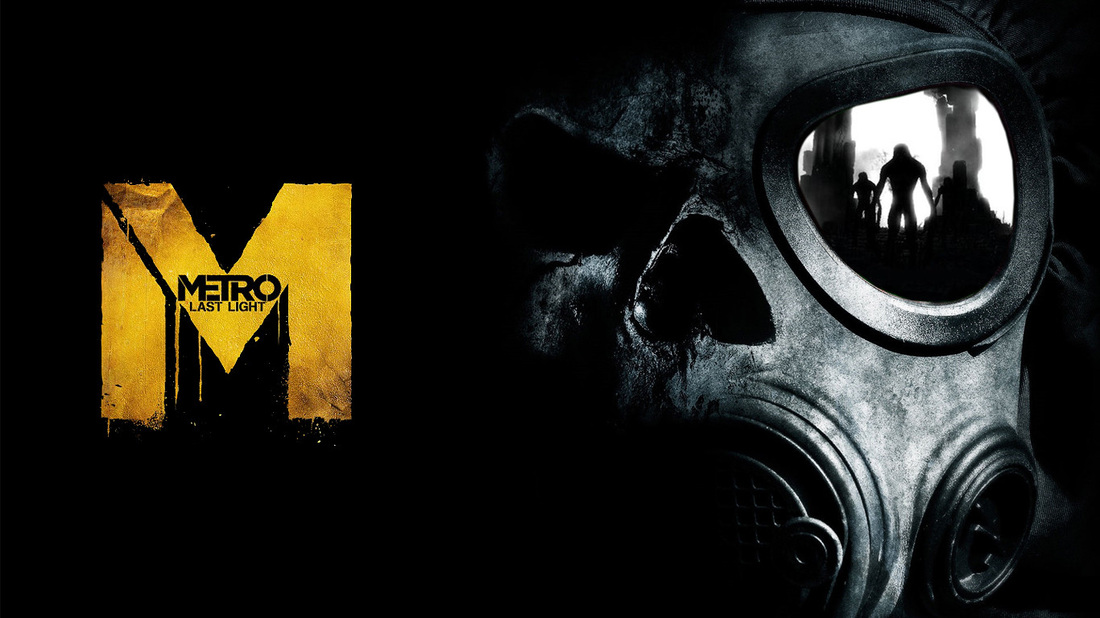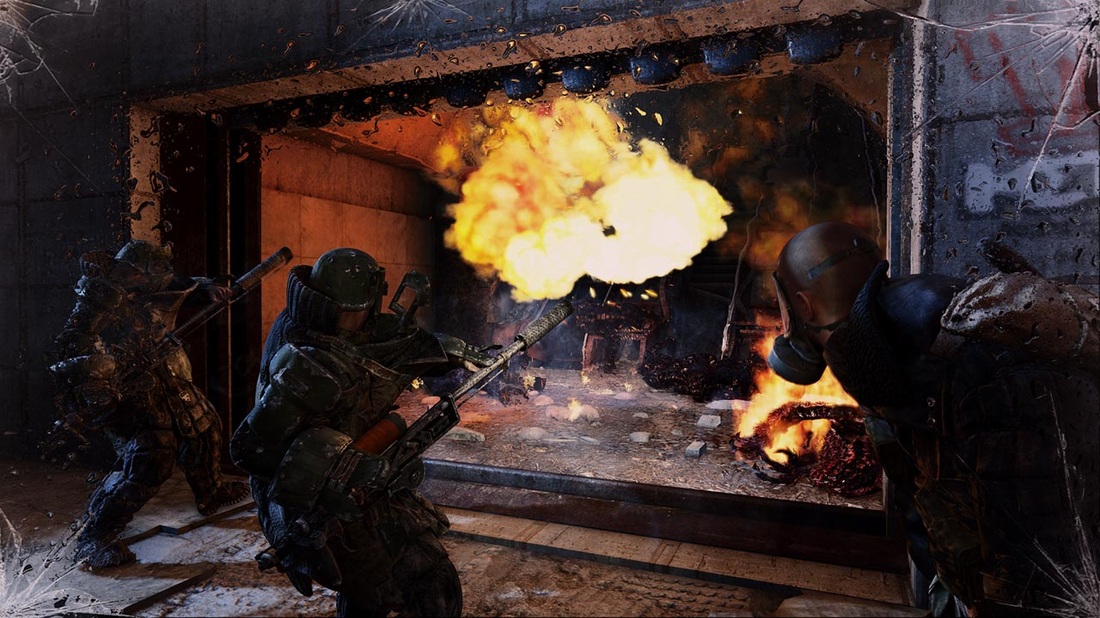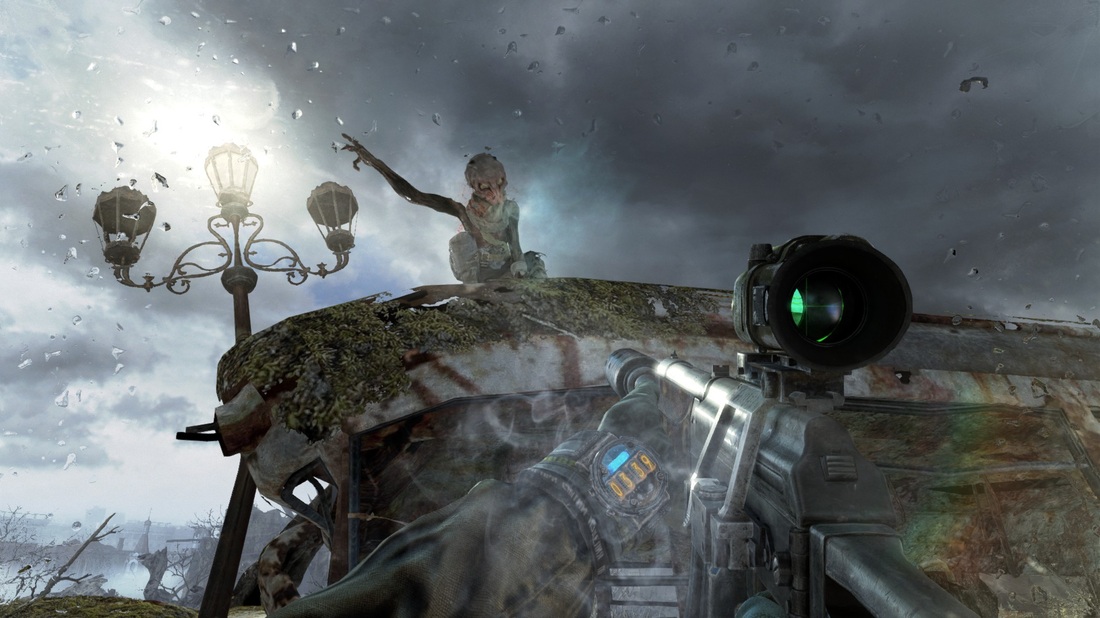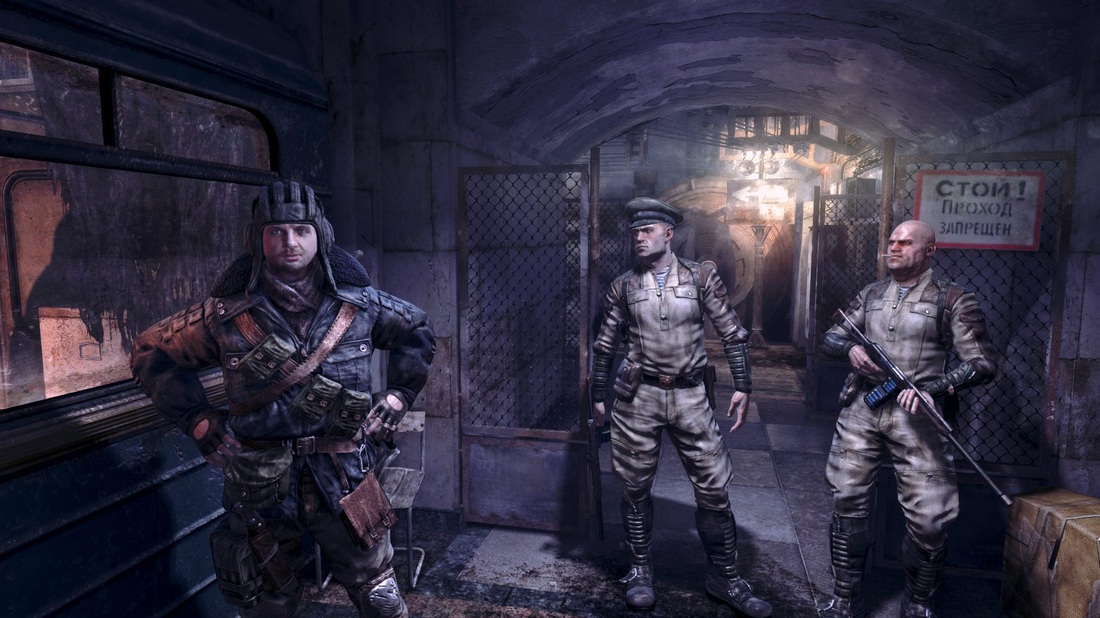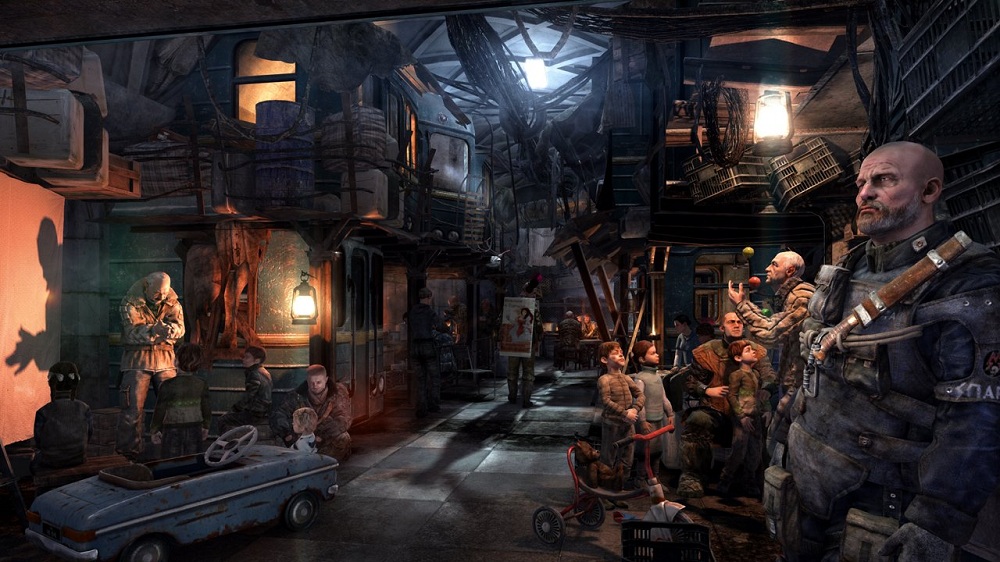|
Written by Zima Beck.
The sequel to 2010′s wonderfully esoteric Metro 2033; Last Light places you once again in the role of Artyom, one of the survivors of a post-apocalyptic event that has seen the remaining inhabitants of Moscow retreat to the Metro tunnels beneath for survival. Here, struggling for resources and food, mankind has become ever-more fractured and a three-way power struggle has emerged featuring the Soviets, the Fourth Reich and Artyom’s own Rangers. The apocalypse, it seems, has merely fuelled man’s desire to conquer one another and impose ideology, which is perhaps the most harrowing undertone of the entire series. Juxtaposed against this tension is the emergence of a new species of psychic beings, the Dark Ones, with whom Artyom shares a connection. Mankind’s inability to embrace either each other or what they see as a new threat to their existence creates a deliciously dark and unnervingly realistic backdrop to what is an incredibly atmospheric experience. Mix-in a variety of other mutated enemies and you’re left with a rich and varied setting for a taut and tense tale. Last Light’s predecessor was not without its faults and it’s heart-warming to see that almost all of them have been addressed in this highly accomplished sequel. Enemy AI was decidedly last-gen at best in 2033 yet here, humans at least react with a real sense of intelligence and co-ordination. Mutants still attack like an unstoppable wave of teeth and claws but the contrast is at least noticeable this time and it ties-in logically with the nature of each enemy. Couple this with increased control over the lighting of each environment in the form of unscrewable light bulbs (seriously – why hasn’t anyone thought of this before?!) and you’re presented with a significantly enhanced realisation of what was already a highly believable and gripping world. The overarching atmosphere is further supported by some truly stunning visuals, built upon 4A Games’ powerful, proprietary 4A Engine – something that’s becoming rather a hallmark of Easter European developers. 2033 was a solid visual experience but the results here feel like a generational leap and play perfectly to the game’s creative ambitions. Real-time shadows are, in my opinion, an absolutely essential ingredient in any title wishing to be noted for its stealth credentials; they are employed here with aplomb. Textures and other visual effects are pitch-perfect and although, on console, the frame-rate and v-sync take the occasional knock, the sheer quality of what is on offer is more than enough to keep you in the moment and free from any technical distractions. Whilst those that missed 2033 will be able to soon settle into the game’s narrative (largely thanks to a superb intro sequence), the gameplay mechanics themselves do take some getting used to – even for seasoned gamers. A varied array of gadgets, projectile weapons, customisable guns, resources and even ammunition make for a number of plates-to-spin in real-time. This is something that’s deeply integral to the Metro experience but it does take some time to familiarise yourself with the various options and their implications. Even seemingly simple endeavours such as walking outside require you to not only wear a gas-mask but to monitor its filter and even wipe the visor clean after stepping through a puddle too many. You can’t even view your compass and objectives without first whipping your lighter out – which itself comes in handy when large cobwebs need burning away. This deep level of realism and attention to detail is extended to every aspect of Last Light. NPCs don’t merely churn-out the same, tired selection of one-liners, as is the norm, but actively engage in lengthy, engrossing exposition that you will find yourself stopping to listen to with increasing regularity. You literally feel as though you’ve stepped into a living, breathing world – the highest accolade that any game could wish to strive for. Such is the attention to detail in the game world and such is the strength of the presentation and narrative that Last Light elevates itself to something so much more than the sum of its parts. |

